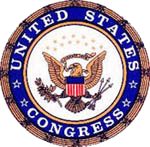Bye Bye Banks

Linden Lab made headlines recently by announcing a ban on banks in Second Life that lacked government certification, effective Jan. 22, 2008. This move was brought on, according to the announcement itself, by the collapse of Ginko Financial and the existence of virtual banks offering "unsustainably high interest rates" of up to 60% APR. Investors reportedly lost $750,000 when Ginko went under.
What Linden Lab did was to, in effect, pass off the business of bank regulation to real world governments. Rather than developing their own standards and rules, or allowing such standards to develop organically in-world, Linden Lab passed the buck, claiming "Linden Lab isn’t, and can’t start acting as, a banking regulator."
There are a couple of important observations to make, one relating to the big picture of virtual world regulation and the other to one aspect of this ban. First, the big picture. Virtual worlds have, heretofore, existed without significant government regulation and oversight. While actual crimes, like fraud in the case of Ginko, should be prosecuted by law enforcement, this lack of regulation is, IMHO, a good thing. By stepping forward and imposing their own regulation (albeit by simply adopting existing governmental regulations), Linden Lab is demonstrating the capacity for self-governance and self-regulation. My own sense of things is that regulatory bureaucracies tend to want expand their scope of oversight. Regulation is, after all, their raison d'être. If there is a vacuum, they will move to fill it. Whether you like the specifics of this particular ban/regulation, at least it shows that virtual worlds are capable of and willing to fill the regulatory vacuum themselves.
A second point worth making is that the Linden Lab policy does not specify which government certification must be met. According to the policy:
We will not apply this [ban] to companies who submit a registration statement, charter, or other applicable license from a governing regulatory authority, or who are merely conducting marketing or education, but not accepting payments. (emphasis added)Thus, a bank could choose to incorporate in a country that has lax financial standards, such as some African or Asian nations. That is, merely requiring government certification in no way guarantees that strong, consumer- and investor-friendly regulations apply. Investors still need to be on guard against the same type of fraud that brought down Ginko. In fact, one could argue that in some ways, things are now worse, since investors might (erroneously) assume that this ban means all functioning banks in Second Life are well-regulated since they meet a government's standard for operation.
